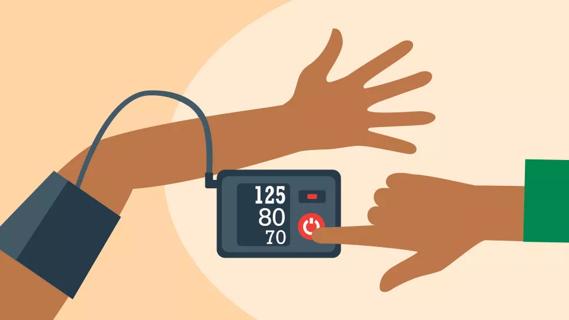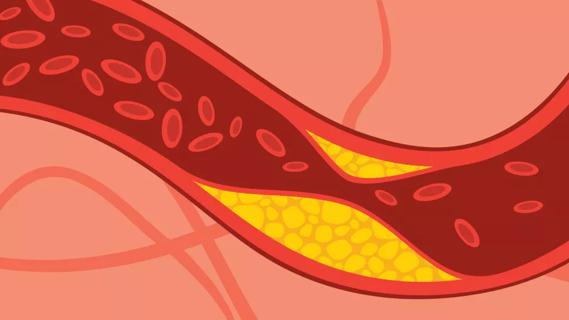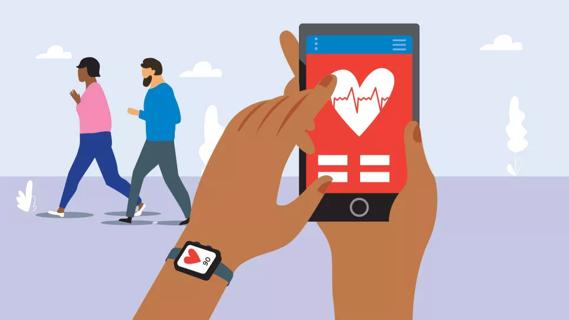
Your heart rate climbs and dips depending on what you’re doing, how you’re feeling and what’s happening around you.
Cleveland Clinic is a non-profit academic medical center. Advertising on our site helps support our mission. We do not endorse non-Cleveland Clinic products or services. Policy
But your resting heart rate is your baseline pulse. It’s a measure of how fast your heart beats when you’re completely at rest — sitting, sleeping or relaxing on the couch while binge-watching your favorite sitcom.
Resting heart rate can vary from person to person and day to day. But a high resting heart rate can be a red flag. “It’s usually a sign that something else is going on in the body,” says cardiologist Tamanna Singh, MD
Here’s what you can do to bring that number down.
How can you dial down a resting heart rate? The following lifestyle changes can boost heart health and lower your pulse.
The most common cause of a high resting heart rate is a sedentary lifestyle, where you spend a lot of time not moving. The No. 1 way to lower your resting heart rate into a healthier range? Exercise, says Dr. Singh.
“The more you exercise, the stronger your heart becomes,” notes Dr. Singh. “Since it’s pumping more blood with each beat, it won’t need to pump as hard — which will lower your heart rate.”
To give your heart a healthy workout, the American Heart Association recommends at least 150 minutes per week of moderate-intensity aerobic activity or 75 minutes per week of vigorous activity.
Exercise brings other benefits, too, of course, as being in poor shape can increase the risk of problems such as high blood pressure, diabetes and weight gain.
Anxiety and stress can elevate the heart rate, too. To help bring it down, try to bring calm to your day.
“Practice mindfulness,” says Dr. Singh. “Try to meditate or do breathing exercises.”
There’s a reason why caffeine and cigarettes qualify as stimulants: “Both can drive your heart rate up,” says Dr. Singh.
Cutting back — or cutting them out entirely — may help lower your resting heart rate. (A dietitian has some advice about scaling back caffeine consumption. Want to quit smoking? Here are some tips from an integrative medicine physician.)
Dropping a few pounds and getting leaner can help bring down your heart rate. “The more weight you carry, the harder your body has to work to move blood through the body — especially if you don’t have a lot of muscle mass,” says Dr. Singh.
Embracing good nutrition and regular exercise can help you maintain a healthy weight. Plus, they’re good for your overall heart health. Consider it a win-win.
Drinking water makes your heart’s job easier. Dehydration can cause the blood to thicken, which means your ticker has to work harder to push blood around. So wet your whistle to give your heart a break and lower resting heart rate.
Try to avoid alcohol, too, as it can contribute to dehydration. (Alcohol also can boost heart rate, by the way.)
If you’re regularly short on shut-eye, it’s hard on the heart. Get plenty of sleep to help keep your heart (and the rest of you) healthy.
In general, a slower resting heart rate is a sign of good health. Some athletes and people who are very active even have heart rates that dip below 60 when they’re at rest.
There’s no one number that’s best, though. However, if you notice your heart rate is consistently over 100 — especially if you’ve tried making lifestyle changes — it’s worth mentioning it to your doctor, says Dr. Singh.
A high resting heart rate can be an indicator of problems such as:
Plan to be patient. It can take a few months before a new exercise routine or other lifestyle changes affect heart rate. “Just like building your biceps and triceps, it takes time for your heart to become stronger,” notes Dr. Singh.
Focus on heart rate patterns rather than getting hung up on a specific number, too. Look for trends. For instance, how does your heart rate change after you eat certain foods or if you’re dehydrated? Or did it drop after starting a new exercise routine or stress reduction program?
Those trends will point you (and your heart) toward healthier choices. “Resting heart rate isn’t the end-all be-all,” Dr. Singh adds, “but it’s a marker you should pay attention to.”
A normal resting heart rate is typically between 60 and 100 beats per minute.
The best time to measure your pulse is right after you wake up when you’re still in bed. Place a finger on the side of your neck or against your wrist until you feel your pulse. Then count the number of beats in 60 seconds.
Learn more about our editorial process.

You can counter the risk of prediabetes-related heart attack or stroke by eating more fruits, vegetables and whole grains, as well as exercising regularly

An ideal blood pressure is less than 120 mm Hg systolic and less than 80 mm Hg diastolic

LDL cholesterol and lipoprotein (a) cholesterol are more likely to stick to your arteries and lead to dangerous heart events

Having underweight, having overweight and having obesity can be dangerous for your heart

This technology can benefit your workouts by helping you hit your target heart rate, resulting in better overall health and wellness

A resting heart rate below 35–40 beats per minute or over 100 beats per minute may be cause for concern

Your natural estrogen levels support a healthy heart by improving your cholesterol, increasing blood flow and reducing free radicals

Ground flaxseed is full of heart-healthy omega-3s, antioxidants and fiber, and easy to add to just about any recipe

Your metabolism may torch 1,300 to 2,000 calories daily with no activity

A gentle touch in all the right places may help drain your sinuses